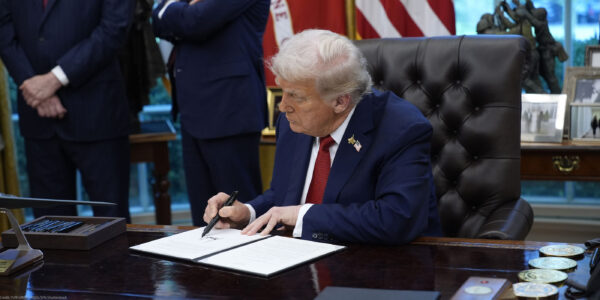The Guantanamo Military Commissions will reconvene on Wednesday, January 11 - four years to the day since the arrival of the first detainees at Camp X-Ray. Since then, more than 700 men and boys have been held here, and 505 remain in detention, in nearly complete isolation from the world. (Not so, assures my Visitor Handbook: "To date, the detainees have sent over 21,600 pieces of mail and have received over 15,300 pieces of mail.") Of those 505, only nine have ever been charged with crimes of any kind. The ACLU and other human rights observers have come here to observe proceedings in two of those cases.
We arrived yesterday on a military C-130 transport jet, a mode of transportation aptly described as "austere" by our military contact. (Picture a Mack truck with wings, four deafening propellers, bench seating, temperamental heating, and a toilet behind a curtain in the back.) A military lawyer for one of the detainees joked that when he last flew in a C-130, he was being shot at in Iraq. But, he said, "These planes are the best. These planes can't crash. Even when they crash, they don't crash." He slept soundly for the next five hours; I didn't.
Why are we here nearly three days before the start of the proceedings? Not, presumably, because the military so enjoys denying our repeated requests (to see where and how detainees are housed; to inspect the hospital where dozens of hunger-strikers have been force-fed; to meet privately with the prosecution and with Commission members). Rather, it's because the proceedings were originally scheduled to reconvene tomorrow - on one of the holiest days of the Muslim calendar, the celebration of Eid al-Adha. The Commission schedule was belatedly adjusted, but the travel schedule was not, so the military now has two dozen international reporters to entertain, and four ornery human rights observers to stonewall, for an extra day. (The press got a tour today. We didn't.)
Each of the two cases in which proceedings will be held on Wednesday highlights troubling aspects of these Commissions. Omar Ahmed Khadr, a Canadian citizen, was a 15-year-old child when he was captured on an Afghan battlefield and brought to Guantanamo, where he has been held for 40 months in solitary confinement and, according to his attorneys, subjected to highly abusive interrogation. He has been charged with "murder by an unprivileged belligerent" for his role in a firefight in which a United States soldier was killed.
Ali Hamza Ahmad Sulayman al Bahlul, a Yemeni native, has been charged with "conspiracy" and is accused, essentially, of being an al Qaeda propagandist. Al Bahlul caused something of a stir in August of 2004 when, during a prior hearing in his case, he announced his desire to represent himself - or, in the alternative, to be assisted by a Yemeni lawyer in place of his appointed military defense counsel. (For a firsthand account of that day's proceedings, see this post by our Executive Director Anthony Romero.) The Commission, which adjourned to allow resolution of al Bahlul's self-representation request, has since ruled that he can neither represent himself nor be represented by Yemeni counsel. Whether al-Bahlul's appointed military counsel will agree to participate in proceedings -- against the wishes of his "client" -- is a question that will provide some of this week's drama.
As a lawyer, I can't help being concerned about a detainee without legal training confronting this bewildering and entirely unprecedented legal system, especially when I see the skill and dedication of the military defense counsel who have challenged the legitimacy of these proceedings both here and in federal court in the United States. And yet, it's easy to understand why a detainee who has been held here virtually incommunicado for well over three years, subjected to harsh interrogation, and accused of a crime that has no basis in U.S. or international law, might mistrust a defense lawyer wearing the uniform of his captors. It's possible to view al Bahlul's request as a demand not only for self-representation, but for self-expression. For a brief moment, Bahlul will emerge from isolated confinement into the world spotlight. If he chooses to speak to the world in his own voice and not that of appointed military counsel - whatever the consequences - it's hard to fault him.
I'll write more about these two cases, and about some of the ACLU's broader concerns about the Commission system, tomorrow. Meanwhile, the "Clipper Club" serves Buds for $2, Red Stripes for $3, and shots of Jack Daniels in a plastic cup for $2.50. After a day of being told "no" in eight different ways -- from the terse, to the avuncular, to the analogous (Colonel: "You want to see that? I want to have dinner with J. Lo. It's not gonna happen." BW: "Don't sell yourself short.") -- I've got a thirst. And I've got a wallet full of singles.



